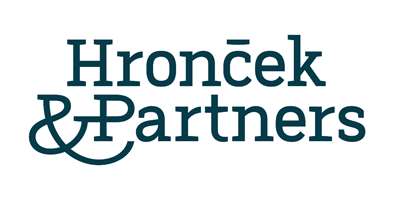AI is becoming an integral part of modern business. However, its rapid development also brings with it a need for regulation. The European Union has therefore adopted the AI Act, the first legal framework to ensure the transparency, ethics, and safety of AI technologies. What changes will this law bring and how will it affect business? Read on to find out more!

Introduction to artificial intelligence and its rapid development
Artificial intelligence (AI) is one of the most fundamental technological innovations of the 21st century. From automating simple tasks to advanced systems capable of analyzing vast amounts of data and making decisions, AI is now used in almost every area of life.
However, with the rise of AI comes a growing need for regulation. The use of AI in healthcare, finance, and human resources can have a profound impact on people's lives. Improperly configured algorithms can lead to discrimination, unethical use of data, or privacy violations. That is why the European Union has adopted the AI Act, the first comprehensive legal framework for regulating artificial intelligence.
What is the AI Act and why is it important?
The European Union has adopted the AI Act, the first comprehensive legal framework for regulating artificial intelligence (AI). This historic step provides clear rules for the development, implementation, and use of AI in various sectors. The main objective of the AI Act is to ensure transparency, protect human rights, and promote innovation without compromising the privacy and security of users.
What changes will the AI Act bring?
Under the new rules, AI systems will be classified according to the risk they pose to society:
Unacceptable risk – Prohibition of certain unethical AI practices, such as behavior manipulation or illegal biometric tracking.
High risk – AI systems used in healthcare, finance, education, or employment, which will be subject to strict regulatory measures.
Low and minimal risk – Free use of AI without major restrictions, such as AI chatbots or process automation.
How will the AI Act affect companies?
Companies that develop or use AI will have to ensure the transparency of their algorithms, the auditability of decision-making processes, and the protection of personal data. For those with a significant impact on users, this means an obligation to:
- Ensure thorough testing of AI models based on the principles of fair play and the GDPR.
- Introduce mechanisms to minimize discrimination and bias in algorithms.
- Provide clear information to users about how the AI system works and what data it uses.
Penalties for non-compliance with the AI Act
Companies that fail to comply with the AI Act will face strict penalties, similar to those under the GDPR. Fines will depend on the severity of the violation and the impact on users. Non-compliance can lead to heavy financial penalties, loss of customer trust, and legal disputes.
How to prepare for the AI Act?
If your company uses AI technologies, it is important to start preparing for the new regulatory requirements now:
1. Conduct an AI process audit – assess whether your AI systems meet the criteria for transparency and security.
2. Adjust internal policies – implement mechanisms to control and document the AI decision-making process.
3. Work with experts – legal and technological advice will help you ensure compliance with the new rules.
How can we help you?
At Hronček & Partners, we focus on the legal aspects of digital transformation, AI regulation, and compliance. Our partner company Top Privacy provides expert services in the areas of GDPR, personal data protection, and cybersecurity.
If you need advice on adapting to the AI Act, please contact us. We will help you set up legislative and technological processes to ensure compliance with the new requirements.
